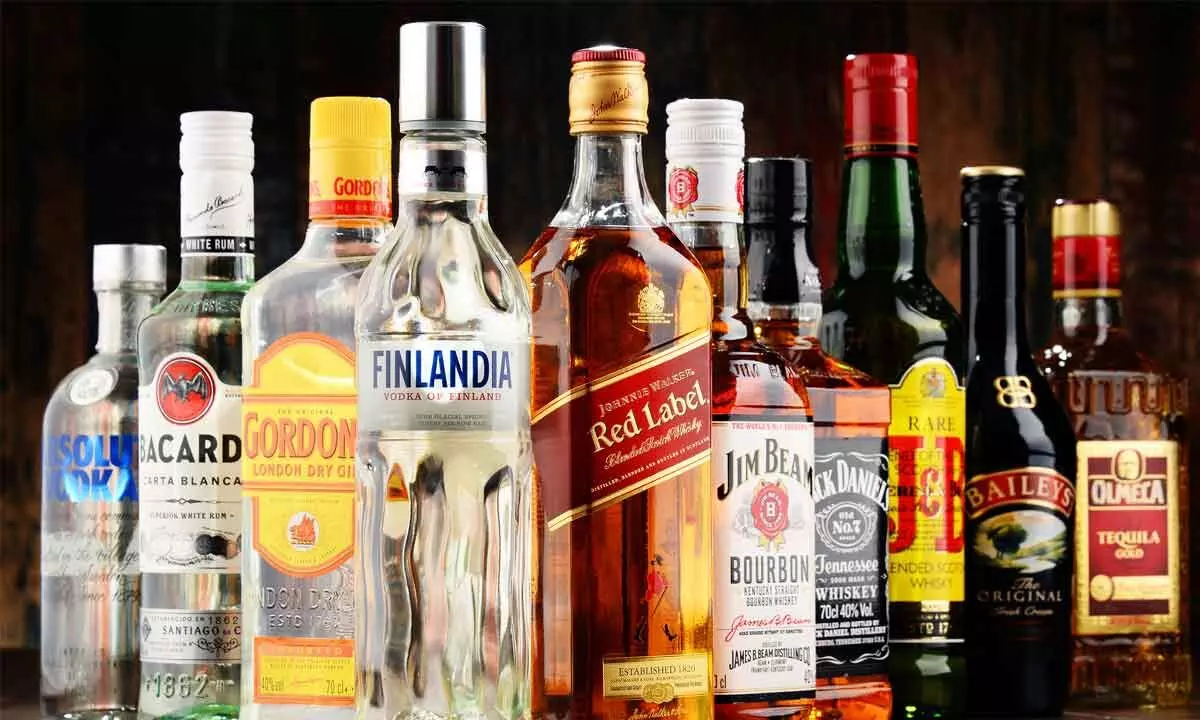Budget expectations: AlcoBev industry seeks reduced excise duty
Taxability of alcoholic beverages is a state subject but the Union budget decides the GST structure
image for illustrative purpose

As there is no GST on the final product, which is liquor, the industry is unable to avail of the benefit of the input tax credit (ITC) for the taxes already paid during the purchase of raw materials and packing materials from suppliers
The alcobev industry yearns for a gradual reduction in excise duties, currently exceeding 50% of retail price, to stimulate volume and curb illicit trade.
Even as the Central government gets ready to present Budget 2024 on February 1, there are great expectations from Union Finance Minister Nirmala Sitharaman.
Many experts in the industry expect that the import duties on alcohol products like spirits, beers and wines would come down, while another section of expects financial assistance or tax breaks for adopting digital payment systems.
Nita Kapoor, CEO, International Spirits and Wines Association of India, said “Whilst the alcobev industry is a state subject, the Union Budget 2024 holds immense significance for the AlcoBev industry's key input material ENA. The Ethanol Blending Program (EBP) aims to achieve 20% biofuel blending in petrol by ethanol supply years (ESY) 2025-26. As a consequence, the pricing of un-denatured alcohol meant for alcohol production has been fluctuating, leading to a nine per cent increase in ENA cost over the last 12 months. Given the importance of the alcobev excise collections to states, ISWAI urges for a more temperate blending target."
Going further, Kapoor adds “As a consequence, the pricing of un-denatured alcohol meant for alcohol production has been fluctuating, leading to a 9% increase in ENA cost over the last 12 months. Given the importance of the alco-bev excise collections to states, ISWAI urges for a more temperate blending target."
Though the taxability of alcoholic beverages is mostly under states’ jurisdiction, the Union budget is relevant for matters related to GST. These arise due to the unique tax anomaly with the alcobev sector – while the final product is outside GST, most of the input costs are under GST, and there is no set-off mechanism, said Vinod Giri, Director General of Confederation of Indian Alcoholic Beverage Companies (CIABC).
“Furthermore, there are issues related to allowing the industry input tax credit, taxability of brand owners’ surplus, and settlement of GST as paid on job work for the period before the clarificatory circular by the Ministry on October 1, 2021, that we hope are addressed through the Budget. In short, at this stage, we hope the Budget solves our past issues; steps to boost the industry will come only subsequently," said Giri.
Tushar Bhandari, Managing Director, Associated Alcohols & Breweries Limited, said, “The industry is brimming with potential, fuelled by a booming premium segment (8-10% growth) and rising disposable incomes.
Harmonizing state regulations and streamlining permits will unlock operational efficiency. E-commerce, a Rs 5,000 crore giant with 15-20% growth potential, needs a clearer regulatory framework to flourish,” he said.
According to Vikram Kulkarni, partner (IT) BDO India, “liquor for human consumption is outside the purview of GST. However, State governments levy excise and VAT on the same.
The alcobev industry currently faces a challenge where it pays Goods and Services Tax (GST) on the procurement of raw materials, packing materials, and services. However, as there is no GST on the final product, which is liquor, the industry is unable to avail of the benefit of the input tax credit (ITC) for the taxes already paid during the purchase of raw materials and packing materials from suppliers. This results in a situation where the industry is unable to offset the GST paid on inputs against the tax liability on the final product, affecting its ability to claim tax credits and potentially impacting overall costs.
Sumedh Singh Mandla, CEO of VBev, emphasised the need for a tax policy that promotes both industry growth and responsible practices. He also highlighted the potential of the Budget to influence international trade dynamics. In other words, the ideal tax policy would benefit businesses while also aligning with ethical and sustainable practices and the upcoming Budget could be used to strategically position India in the global trade landscape. He advocates “impactful Free Trade Agreements (FTAs) with other nations to unlock new opportunities for the beverage sector, elevating global competitiveness, and opening new markets” for Indian beverages.
“As a burning priority, we want the Union government to bring closure to the matter of GST on ENA, the primary raw material used for making liquor. The GST Council had recommended for it to be kept out of the GST net in its meeting last October, but the notification is yet to be issued to operationalise it, which is causing great uncertainty in the industry," Giri added.
“While the alco-bev industry continues to evolve in terms of consumer preferences, new opportunities for the sector can be unlocked through standardised pricing, centralised policy, and a sustained policy regime," Riyaaz Amlani, founder and Managing Director, Impresario Entertainment & Hospitality, said.

